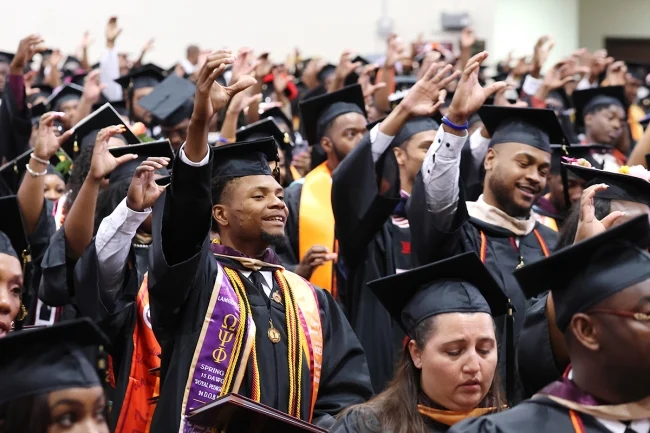By Alcino Donadel
With campus IT teams reaching Amazon-like levels of service, predictive analytics boosting student enrollment and retention, and AI yet to unlock its potential, HBCUs can no longer afford to do “more with less” in higher ed’s tech-infused environment, declares a new report from Complete College America.
The nonprofit, dedicated to improving equitable college completion rates, is challenging policymakers to erase longstanding funding gaps between HBCUs and predominantly white institutions. Heavier investment, researchers argue, will help HBCUs build a digital learning infrastructure that supports the latest trends in student personalization, administrative automation and edtech solutions.
“Investing in cutting-edge technology on HBCU campuses isn’t just about modernization—it’s about unlocking student potential and preparing the next generation of HBCU students and leaders for a tech-driven future,” Yolanda Watson Spiva, president of Complete College America, said in a press release. “HBCUs must be fully funded and equipped to lead in this digital era, and that requires bold investments in their infrastructure.”
HBCUs comprise 3% of the nation’s colleges and universities but produce 20% of all Black graduates in the United States, according to the United Negro College Fund, and graduation rates among Black students are 11 percentage points higher at HBCUs than at other colleges and universities. Despite this, the U.S. Department of Education recently found that states have underfunded land-grant HBCUs by $13 billion over 30 years.
“Failing to rectify historical inequities,” the report reads, will create larger gaps in the higher education system. Higher education leaders and national consulting firms worry AI will spawn the next digital divide, but HBCUs that have harnessed its power have credited it with helping increase enrollment.
For higher ed leaders and policymakers interested in upgrading HBCUs, check out Complete College’s America’s most recent Digital Learning Infrastructure report.
“Through this work, we’re uplifting powerful examples of how HBCUs are building the technology infrastructure to carry out their vital mission—and deliver the highly personalized experience and sense of community our students expect and deserve,” said Dr. Dionne Curbeam, vice president of information technology and chief information officer at Coppin State University.

